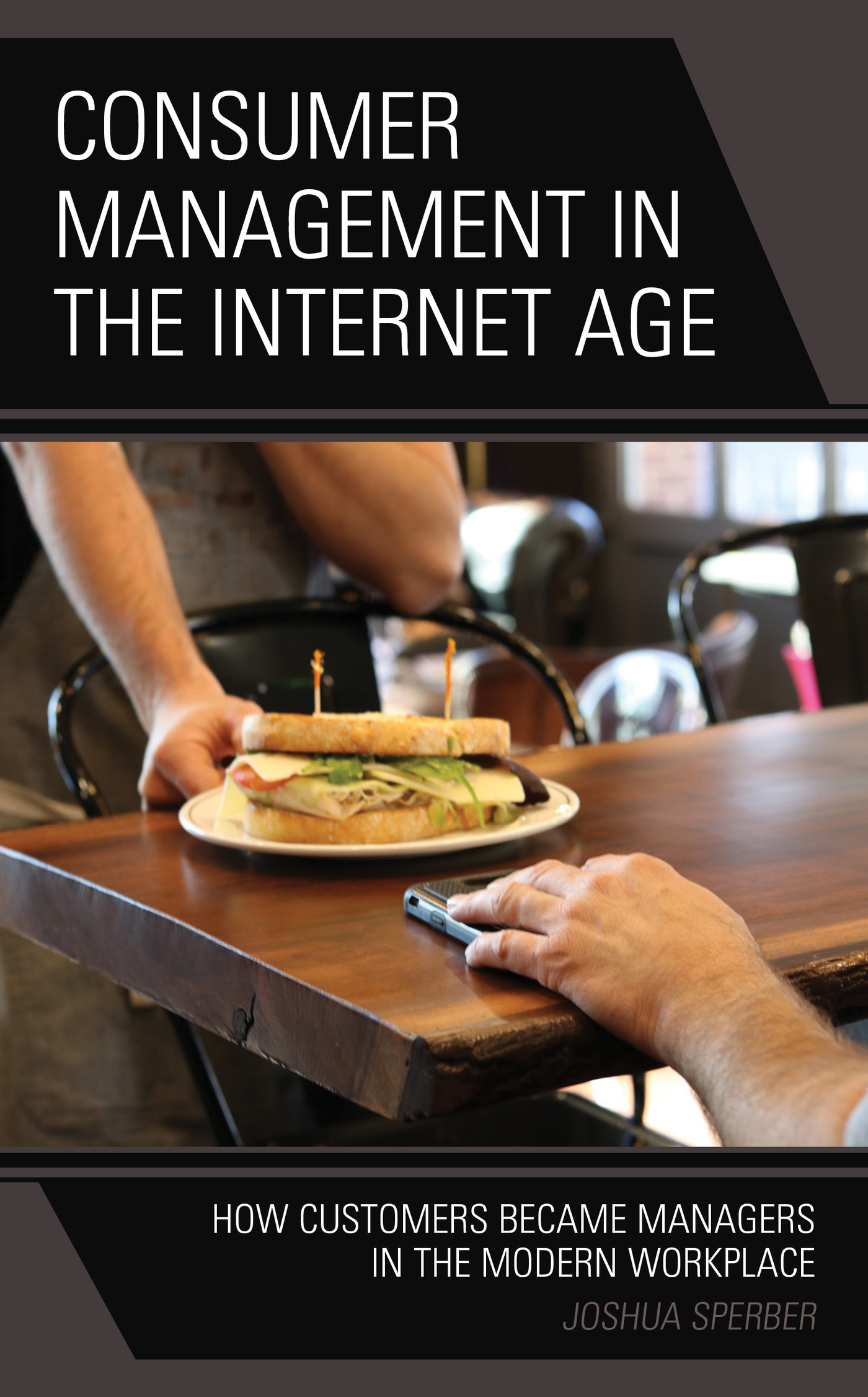Consumer Management in
the Internet Age
Consumer Management in
the Internet Age
How Customers Became Managers in the Modern Workplace
Joshua Sperber
LEXINGTON BOOKS
Lanham Boulder New York London
Published by Lexington Books
An imprint of The Rowman & Littlefield Publishing Group, Inc.
4501 Forbes Boulevard, Suite 200, Lanham, Maryland 20706
www.rowman.com
6 Tinworth Street, London SE11 5AL
Copyright 2019 by The Rowman & Littlefield Publishing Group, Inc.
All rights reserved. No part of this book may be reproduced in any form or by any electronic or mechanical means, including information storage and retrieval systems, without written permission from the publisher, except by a reviewer who may quote passages in a review.
British Library Cataloguing in Publication Information Available
Library of Congress Cataloging-in-Publication Data
Names: Sperber, Joshua, author.
Title: Consumer management in the Internet age : how customers became managers in the modern workplace / Joshua Sperber.
Description: Lanham : Lexington Books, [2019] | Includes bibliographical references and index.
Identifiers: LCCN 2018057741 (print) | LCCN 2019000433 (ebook) | ISBN 9781498592222 (Electronic) | ISBN 9781498592215 (cloth : alk. paper)
Subjects: LCSH: Electronic commerce. | Internet marketing. | Consumers. | Customer relations. | Customer services.
Classification: LCC HF5548.32 (ebook) | LCC HF5548.32 .S649 2019 (print) | DDC 658.8/72--dc23
LC record available at https://lccn.loc.gov/2018057741
 TM The paper used in this publication meets the minimum requirements of American National Standard for Information Sciences Permanence of Paper for Printed Library Materials, ANSI/NISO Z39.48-1992.
TM The paper used in this publication meets the minimum requirements of American National Standard for Information Sciences Permanence of Paper for Printed Library Materials, ANSI/NISO Z39.48-1992.
Printed in the United States of America
Acknowledgments
This work began as a dissertation at the City University of New York Graduate Center, where I was tremendously fortunate to have Frances Fox Piven, Corey Robin, and Joe Rollins on my committee. They expertly and generously guided this project from its inception.
Khalilah Walters, Elliot Sperber, E.J. Hamacher, and Kristofer Petersen-Overton provided exceptionally helpful advice for improving the work. My grasp of the subject was additionally strengthened through a series of broader conversations I had with Geoffrey McDonald, Malcolm Dunn, Joel White, and Heather Klingelsmith.
I also received much helpful feedback and support from people I met at or through the Grad Center including Sobukwe Odinga, Aaron Shapiro, Joanna Tice Jen, Alan Koenig, Puangchon Unchanam, Amy Schiller, Lizzie Eisenberg, Douglas Medina, Wilson Sherwin, Luke Elliott-Negri, Jeffrey Broxmeyer, Adam McMahon, Mike Miller, John McMahon, Asaf Shamis, Robert Castle, Liz Nelson, Fanny Lauby, Chris McKinley, Lucia Green-Weiskel, Yekaterina Oziashvili, Chris Michael, Gerry Martini, Andre Guzzi, Guy Feldman, Neil Hernandez, Erika Iverson, Dan Rogers, Humayun Kabir, Tom Waters, Kamran Moshref, Ximena Garcia Bustamante, Emily Crandall, Rachel Brown, Jon Keller, Jorge Matos, and Kabir Dandona.
I am indebted to several anonymous reviewers whose perspicacious readings of the manuscript and supportive advice dramatically improved it.
I feel very fortunate to have worked with Nicolette Amstutz, Jessica Tepper, and Megan Murray at Lexington Books, all of whom demonstrated great consideration, patience, and thoughtfulness in bringing the project to light.
New Labor Forum and Counterpunch provided me platforms to develop and share ideas that are in this book.
This work is in part the culmination of many years of learning under the tutelage of outstanding teachers. Ironically, four of the finest teachers Ive ever hadNicholas De Genova, Thaddeus Russell, Christopher R. Jackson, and Deborah A. Gersonwere not retained at the universities where I learned from them, illustrating that exemplary teaching often occurs not because of but in spite of the university. I dedicate this to them and to all other teachers who have undeservedly been separated from their students and their craft.
Introduction
In the mid-1990s I worked for three restaurants. Although one, Cocos Bakery Restaurant, was part of a large national conglomerate and two were family-owned and run, all three regularly emphasized the importance of my being friendly and accommodating to customers. Whereas I was lectured by my bosses at all three restaurants about my needing to smile more, at Cocos my expressions of warmth (as well as my other duties) were not only monitored by managers but also by company mystery shoppers who posed as customers in order to periodically observe and report on our restaurants performance. Our managers regularly warned me that because we could never know who might be a mystery shopper it was imperative to please every customer, and I was in fact reprimanded after my failure to smile at a mystery shopper hurt one of our evaluations.
Two things struck me about the ways in which managers discussed these mystery shoppers. The first was that managers referred to them as if they were autonomous customers rather than who they actually were: company employees whose job was to spy on us. It often crossed my mind to suggest to my managers that we ought to just tell the corporate office to order the mystery shoppers to relax their standards and then nobody would get written up and everyone could be happy. Of course, this unspoken suggestion was designed to acknowledge and play with the disingenuousness of managements invocation of mystery shoppers as an authority external to the restaurant itself. It was quite clear to me that the mystery shoppers were another arm of management, albeit one that could penetrate where managers could not by more intimately observing employees physical and emotional labor. Even though I lived at home at the time and also assumed that I could obtain other work if I were fired, my awareness of the existence of these mystery shoppers altered the way I thought aboutand on some level acted towardcustomers.
The second thing that struck me about this experience was the transparent selectiveness with which managers addressed customers concerns. I had seen managers refuse all manner of customer requests, as unsatisfied customers attempted to have their bills reduced, the music turned down, or their entrees altered to no avail. It was sometimes hard to believe that these dissatisfied customers were the same people who are, as the maxim declares, always right. It was exceedingly clear that, in the eyes of management, they were not. Indeed, the very notion of consumer infallibility is negated by the more prosaic but no less ubiquitous assertion that management reserves the right to refuse service to anyonethat is, to determine who gets to be a customer in the first place. After all, there are customers who, justly or not, have been banned from restaurants, bars, and all manner of other establishments. It seemed then that managers who gave me grief about my disinclination to seem happy were not merely concerned about pleasing the customer, at least not in a universal sense (many customers were oblivious to us and some were clearly turned off by the aggressively saccharine attitudes a few of our colleagues displayed). We were to please the customer but only insofar as and in the manner that our managers said; that is, it was not the customer but the manager who was always right.
It was with this experience in mind that I began to think about the website Yelp. I have often thought about the ways in which, if I worked in a restaurant today, I would be affected by what seemed to me to be that websites millions of unpaid mystery shoppers. I suspected that restaurant managers used Yelp reviews as a form of free customer surveillance and invoked them to discipline employees, and I wanted to find out if this were true. And, if so, I wanted to look at the ways in which Yelp reviews change how restaurant employees think about and perform their work. Finally, I wanted to investigate the reviewers role in this dynamic. Specifically, why do reviewers take time out of their days to write frequently long and detailed online reviews for which they are not paid? Do they write reviews for fun, for revenge, for a sense of social duty? Is the frequent assumption among both social scientists and laypeople that reviewers are primarily inspired by either strongly positive or strongly negative motivations accurate?
Next page
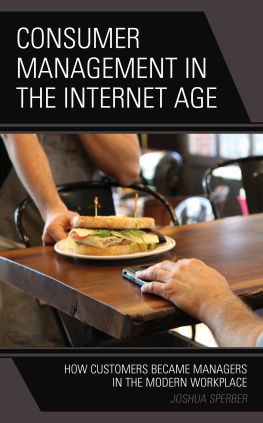


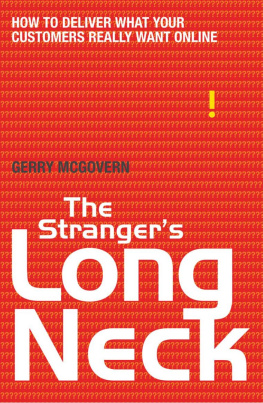


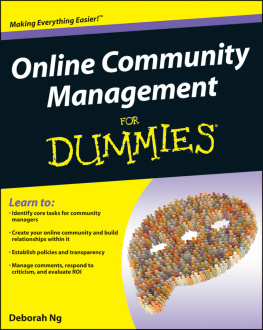
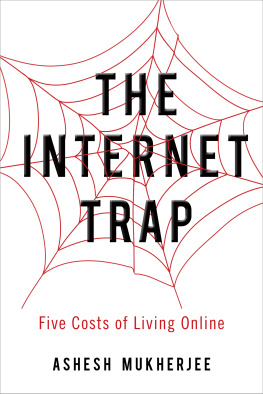
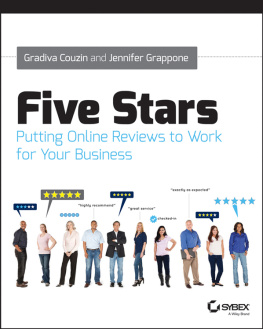
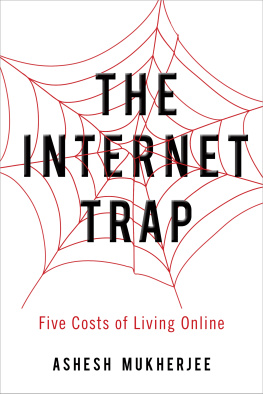

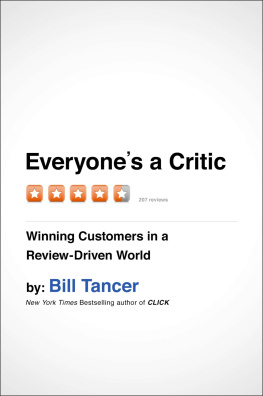
 TM The paper used in this publication meets the minimum requirements of American National Standard for Information Sciences Permanence of Paper for Printed Library Materials, ANSI/NISO Z39.48-1992.
TM The paper used in this publication meets the minimum requirements of American National Standard for Information Sciences Permanence of Paper for Printed Library Materials, ANSI/NISO Z39.48-1992.